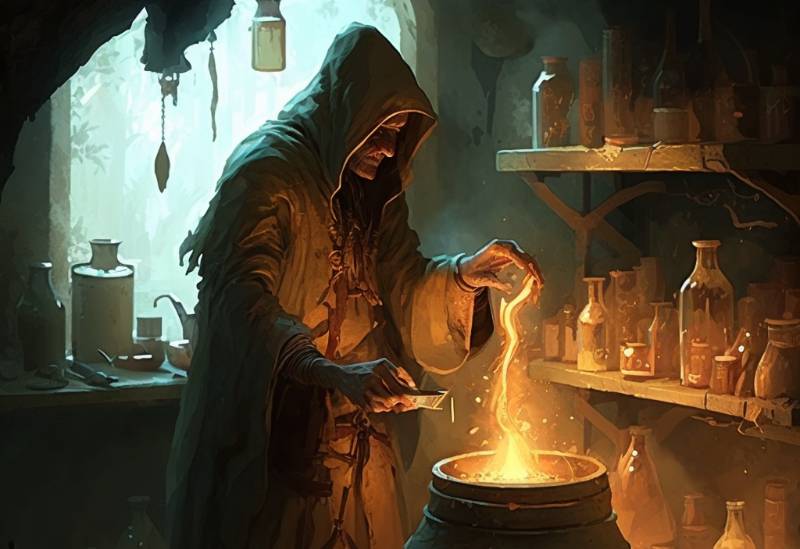
Alchemy, the medieval forerunner of modern chemistry, was a discipline that sought to transform base metals into gold.
But was the quest for gold just a myth, or was there any scientific basis to it?
The origins of alchemy can be traced back to ancient Egypt and Greece, where it was believed that metals were formed by the combination of the four elements: earth, air, fire, and water. The alchemists of the Middle Ages built on this foundation, developing a complex system of beliefs and practices that sought to transform base metals into gold.
At the heart of alchemy was the belief that all matter was made up of a combination of the four elements and that by altering the proportion of these elements, it was possible to transform one substance into another.
The alchemists believed that base metals could be transformed into gold by removing their impurities and purifying their essence.
The pursuit of gold was not just a matter of wealth and power. Alchemists also believed that the transformation of base metals into gold held the key to eternal life and spiritual enlightenment.
The Philosopher’s Stone, the legendary substance that was said to have the power to turn base metals into gold, was also believed to be the key to unlocking the secrets of the universe and achieving mystical enlightenment.
While the quest for gold may seem like a purely mystical pursuit, there were also scientific principles at play. Alchemists were some of the earliest practitioners of chemistry, and their experiments and observations laid the groundwork for modern scientific discoveries. Many alchemists were skilled metallurgists and were able to develop techniques for refining metals and alloys that are still used today.
3 of the most famous alchemists…
Jabir ibn Hayyan (also known as Geber)
A Persian alchemist who lived in the 8th century and is credited with developing many of the fundamental principles of alchemy, including the concept of transmutation.
Paracelsus
A Swiss alchemist and physician who lived in the 16th century and is known for his contributions to the fields of chemistry and medicine. He is credited with introducing the use of chemicals in medicine and is considered one of the founders of modern toxicology.
Isaac Newton
Although best known for his work in physics and mathematics, Newton was also a practising alchemist and wrote extensively on the subject. He was particularly interested in the alchemical process of transmutation and spent much of his later years trying to unlock the secrets of the philosopher’s stone.
In conclusion…
The pursuit of gold by the alchemists was a complex and multifaceted endeavor that combined myth, science, and spirituality. While their quest to turn base metals into gold was ultimately unsuccessful, the alchemists’ work paved the way for modern chemistry and helped to unlock the secrets of the universe.
The legacy of the alchemists continues to influence science and culture today, and their quest for gold remains a fascinating and enduring part of the history of science.
Related Topics:
The importance of gold in cultural traditions around the world.
Some of the most famous lost gold treasures of history… just waiting to be found!

